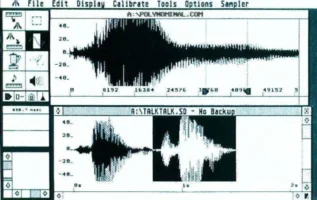Mastering English Pronunciation: Techniques & Tricks for Fluent Speech
- April 6, 2024
- Posted by: Prosenjit Das
- Category: English

Our world is divided by many aspects of our society and language is one of them. Despite all the differences, we find ways to connect and communicate with each other. While there are more than 7000 officially spoken languages around the world, English is the widely used one.
Approximately, there are around 1.35 billion English speakers across the globe. But no matter their widespread use, a lot of us cannot fully hone the language’s pronunciation. A lot of non-native speakers struggle nevertheless, many native speakers might as well stumble on some words that might look similar but uttered totally in different ways.
So, how about we explore some pronunciation exercises to upgrade our English speaking fluency. Let’s take a look –
3 Key Things to Focus On for Improving English Pronunciation
You have to be technical if you wish to improve your English pronunciation. The pronunciation practice words don’t work out easily if you don’t focus on the technique.
Just like how actors work with their dialect coach to learn or polish a certain accent in a specific language, the pronunciation skills require technique as well. Here are the three important elements to target for improving your skill.
- Sounds
Mastering English pronunciation begins with understanding and articulating individual sounds accurately. Each sound in English is distinct and precise, demanding attention to mouth shape, tongue placement, and airflow.
From the crisp “t” sound in “cat” to the soft “th” in “this,” focusing on sharpening these individual sounds lays a solid foundation for clear communication. Invest in your time and effort in learning phonetic symbols and practice associating them with their corresponding sounds.
- Stress & Rhythm
Just like music, English has its own rhythm and emphasis. Learning to stress the right syllables and maintain proper pacing adds melody to your speech, making it easier for listeners to follow and understand.
Whether it’s elongating vowels for emphasis or recognizing patterns of stress in longer words, honing your sense of rhythm enhances the flow and coherence of your speech.
- Intonation
Intonation adds color and emotion to your spoken English, conveying nuances that go beyond mere words. Rising intonation at the end of a sentence indicates a question, while falling intonation signals a statement.
Learning intonation involves understanding the natural cadence of English speech and using pitch variations to convey meaning effectively. From conveying excitement to expressing uncertainty, mastering intonation enhances your ability to engage and connect with your audience.
You’ll observe half the battle of English pronunciation practice is won by championing these techniques.
Effective Tips to Practice the Pronunciation
Listen, Listen, Listen:
Ever heard the saying, “monkey see, monkey do”? Well, it applies to language learning too! Surround yourself with English content – podcasts, movies, songs, you name it. Pay close attention to how words are pronounced in different contexts and mimic native speakers. Mimicry isn’t just a form of flattery; it’s a powerful tool for honing your pronunciation skills.
Break It Down
English pronunciation can be tricky with its myriad of rules, exceptions, and peculiarities. Instead of feeling overwhelmed, break it down into smaller, digestible chunks. For instance, tackle those notorious consonant clusters or work on differentiating between similar vowel sounds. Rome wasn’t built in a day, and neither is perfect pronunciation!
Mirror, Mirror on the Wall
No, we’re not getting poetic here; we’re talking about using a mirror as your trusty pronunciation companion. Position yourself in front of a mirror and observe how your mouth, tongue, and lips move as you articulate different sounds. It might feel awkward at first, but visual feedback can be incredibly helpful in fine-tuning your pronunciation.
Tongue Twisters
Peter Piper picked a peck of pickled peppers… Sound familiar? Tongue twisters aren’t just for amusement; they’re excellent tools for improving pronunciation and diction. Challenge yourself with a variety of tongue twisters targeting specific sounds or combinations. Repeat them slowly at first, gradually increasing speed as you become more comfortable. Your tongue might feel tied in knots initially, but persistence pays off!
Record and Reflect
In the digital age, your smartphone can be more than just a social media hub; it can be your pronunciation coach too! Record yourself reading passages, tongue twisters, or even casual conversations. Listen to the recordings critically, noting areas where your pronunciation may falter. Self-awareness is the first step towards improvement, and listening to your own voice can be enlightening.
These pronunciation exercises definitely work in your favor if you stay consistent and put your best efforts. But to really bump up your learning experience, you can join our English pronunciation masterclass at Multiedsupport. Explore more courses offered by us for professional and academic success.
Related Blogs







